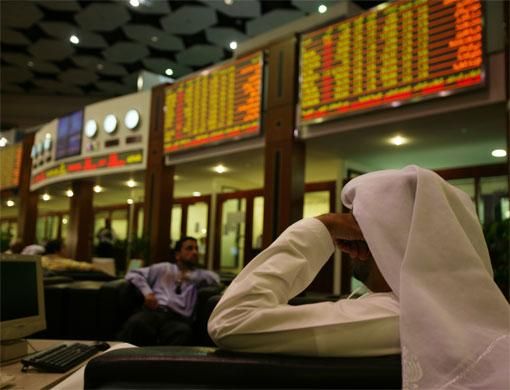Abu Dhabi: The UAE Ministry of Economy has proposed a new set of initiatives to strengthen the economy and minimise the impact of the global financial crisis, including setting up of a common emergency committee and stronger transparency norms.
At a high-level meeting of heads of economic departments in Abu Dhabi chaired by the UAE Minister of Economy, Sultan Bin Saeed Al Mansouri, the officials discussed the need for new mechanisms to facilitate bank deposits that will encourage business growth.
Cut in interest rates
The officials also proposed a cut in interest rates besides initiating varied lending rates for different economic sectors.
They called for the setting up of a common emergency committee to deal with the global economic crisis, and provide recommendations to the Cabinet.
These proposals follow a series of meetings organised by the ministry with the local department heads. Several committees were formed to monitor the performance of markets all over the UAE, which recommended several solutions and suggestions.
The officials discussed the initiatives provided by the minister and various government departments and the different chambers of commerce and industry in the UAE to tackle the unprecedented challenges.
Al Mansouri told the meeting that the strong economic integration of the Federal and local governments had helped minimise the impact of the current global financial crisis on the UAE's various economic sectors.
"The joint efforts with the local entities help in reducing the impact of the global crisis on the UAE markets," said Al Mansouri.
"We are committed to addressing the economic challenges and in formulating appropriate solutions. The ministry has set up a special team to study the suggestions by our committees, which will send its report to the Cabinet for approval and implementation," he noted.
UAE Central Bank role
The participants said the global financial crisis demands urgent involvement of the UAE Central Bank in outlining effective monetary policies.
They said that though the UAE is committed to a free market policy, the government must intervene, where needed.
Other recommendations
The meeting recommended the formation of a supreme committee involving the Ministry of Economy, various economic departments, municipalities and the public- and private sectors.
This committee is also mandated to look into the status of functioning of the real estate sector and tackle potential issues.
Each emirate was urged to adopt effective strategies and policies to meet the challenges faced by the real estate sector and also amend banking policies related to interest rates and lending norms.
The participants called for the need to provide loans for strategic projects, regulate leasing prices, reduce fees of entry visas and sponsorship transfer, and provide commercial warehouses at lower costs.
They said the industrial sector must be provided with easier access to credit for their sustained growth.
They suggested releasing the cash of private sector companies held as bank guarantees by the Ministry of Labour, and to cancel the A, B, C classifications followed by the Ministry for construction companies and putting all of them as A class in 2009 and 2010.
The economic department heads said it was extremely important to enhance the competitiveness of the economy globally. They called upon the local and federal governments and the private sector to join hands in identifying new opportunities and face the challenges.
They called on the need to have stronger transparency norms and urged businesses to provide accurate information to the investors to help them make appropriate decisions.
Role of media
The functioning of the media was also discussed, and the participants said that the media must highlight the positive aspects of the economy too, and not dwell only on negative stories.
Al Mansouri said the ministry will send the recommendations to the Cabinet for approval, after which they will be implemented in co-ordination with the local departments.
Top officials
Top officials including Mohammad Ahmad Bin Abdul Aziz Al Shihhi, director general at the UAE Ministry of Economy; Hamid Bin Butti, executive director of Commercial Affairs Sector at the UAE Ministry of Economy; Sami Al Qumzi, director general of Dubai Department of Economic Development; Ali Bin Salem Al Mahmoud, director general of Development in Ras Al Khaimah, Rashed Al Zaabi, director of Economic Planning, Dept of Planning and Economy in Abu Dhabi; and Aayesh Jawdat Al Barghouthi, director of financial affairs and administration in the Economy Department of Ajman, took part.
Your comments
I think banks should readily:
1). Cutoff unnecessary charges like early settlement charges. People ready to repay their loans when they get back on their feet after being terminated. But bank demanding to pay higher amount for early settlement.
2). Arrange some areas of parking where one could park their car if they cannot currently repay the vehicle loan.
3). The bank and customer should agree in a point for giving a six month period to hold the loan repayment without any additional charges when he or she produces a termination letter to bank.
Hariharan K.
Dubai,UAE
Posted: February 01, 2009, 15:15













